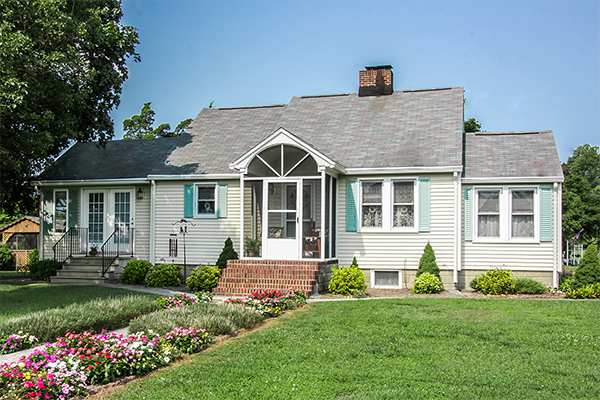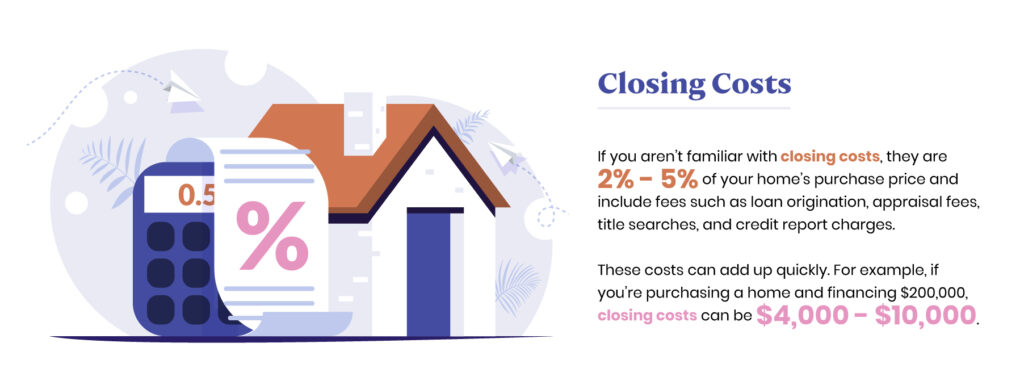Delaware First-Time Home Buyer Programs and Grants of 2022

Key takeaways:
- The Delaware State Housing Authority offers low-interest mortgages to first-time home buyers.
- Down payment assistance is available to help offset the upfront cost of home ownership.
- Federal programs offer flexible credit score requirements and low down payment requirements.
Delaware is an attractive place to purchase a new home. Living in the state has many benefits, including no state or local sales tax and no personal property tax. The state is considered by many to be one of the best states to live in. But purchasing your first home comes with many considerations, including saving for a down payment, understanding how much you can afford, and finding the right house – in the right neighborhood.
Ever heard of a home buyer program? If you haven’t owned a home in the last three years, there are housing assistance programs that make purchasing a new home more affordable. State programs offer low-interest rates and assistance with down payments. And federal programs provide additional perks to those who need more flexibility to qualify for a mortgage.
First-time home buyer Delaware: The DSHA Homeownership Loan
The Delaware State Housing Authority (DSHA) works with lenders to offer affordable 30-year fixed-rate mortgages. The largest benefit of this program is the below market interest rates, helping a first-time home buyer in Delaware to keep monthly mortgage payments low. Eligibility requirements include:
- You must earn less than $97,900 annually.
- The price of the home must be less than $417,000.
- Your credit score must be higher than 620. If you have a credit score of less than 660, you must participate in housing counseling prior to closing the loan.
In addition to the DSHA Homeownership Loan, there is a program that helps with down payment costs for first-time home buyers. This program offers a particular loan to first-time home buyers to help them overcome the challenge of not having a down payment saved.
DSHA Preferred Plus: Down payment assistance
If you’re struggling to come up with a down payment, the Preferred Plus program is an excellent resource. It provides a second loan with no interest up to 5% of your overall loan to use toward the upfront cost of ownership. This includes closing cost assistance. If you aren’t familiar with closing costs, they are 2% to 5% of your home’s purchase price and include fees such as loan origination, appraisal fees, title searches, and credit report charges. These costs can add up quickly. For example, if you’re purchasing a home and financing $200,000, closing costs can be $4,000 to $10,000.

As with a DSHA loan, you must complete housing counseling if you have a credit score lower than 660. Also, keep in mind that if you sell or refinance the loan, the second mortgage will be due. The benefit of these loans is that since they are 0% interest, you will never be required to pay back more than you received.
First-time home buyer tax credit

If you’re a first-time home buyer in Delaware, you may qualify for a tax credit assistance program that makes home ownership more affordable. With this program, you may receive a federal tax deduction equal to 35% of mortgage interest paid – up to a maximum of $2,000 annually. A benefit to first-time home buyers is that they can claim this credit every year of the loan, potentially saving thousands over the life of the mortgage.
A DSHA mortgage is not required to qualify for the credit. Additionally, applicants may pay a one-time $350 application fee to get set up for the program.
What is PMI?
A critical factor for new home buyers to consider is private mortgage insurance (PMI). This insurance is paid every month and will increase your monthly mortgage payment. But what is PMI?
Many first-time home buyer programs require less than 20% down payment on a home. If you put less than 20% down, you will be required to pay PMI. This is an insurance policy for the bank to protect against financial loss. If you stop making mortgage payments, the lender is financially protected.
The cost of PMI varies based on your lender and risk criteria but is generally around $83 a month for each $100,000 borrowed. For example, if you purchase a home and finance $250,000, PMI may cost around $208 a month.
The upside of PMI is that many lenders allow you to remove it from the loan once you have at least 20% equity. For example, let’s say that the home you purchased for $250,000 is now worth $350,000. At this point, you have $100,000 in equity, which exceeds the $50,000 (or 20%) required.
What is debt-to-income ratio?
Regardless of what program you use, it’s important to have a general understanding of debt-to-income (DTI) ratio. The DTI is a calculation that lenders use to determine if you can afford a mortgage payment. The formula examines your household gross income (what you earn before taxes) and your total debt, such as credit card payments, student loan payments, car payments, and the potential new mortgage. Most lenders want to see a DTI ratio no higher than 43%, but there are some exceptions based on the lender and other factors included in your application.
For example, let’s say that you and your partner each earn $3,000 a month for a combined gross income of $6,000. Total monthly debt, including your prospective mortgage payment, is $2,800. Dividing $2,800 by $6,000 provides a DTI ratio of 46%. For many lenders, this ratio is too high. But if you lower the debt to $2,600 per month, that brings the DTI to 43%.
Federal first-time home buyer programs

First-time home buyers are in a unique position in that they have access to state programs and federal programs, creating more ways to save on their first home purchase. A few common challenges for first-time home buyers include saving for a down payment and low credit scores. If you don’t have a large down payment saved, or have a lower-than-average credit score, don’t worry – there are options. Here are a few popular federal programs for first-time home buyers.
If you are looking for a Massachusetts First-Time Home Buyer Programs and Grants of 2021 guide, Home & Money can help you!
FHA loans
The Federal Housing Administration offers FHA Loans, which are good for potential buyers who don’t have a large down payment saved. Down payments as low as 3.5% of the purchase price are allowed. For example, let’s say you are purchasing a home for $350,000. A traditional 20% down payment adds up to $70,000. Add closing costs on top of the down payment and purchasing a home is difficult.
In contrast, FHA programs allow you to put down as little as $12,250. Credit scores that fall below the traditional 660 score are also allowable with this program. The trade-off is the down payment requirement may be higher.
FHA Loans do require an upfront fee of 1.75% of the mortgage amount. A monthly premium amount is also due, which ranges from .45% to 1.05% of the loan amount annually. Both can be rolled into your monthly payment.
VA loans
If you are an active member of the military, a veteran or a qualifying spouse, you may have access to a VA Loan. The benefit of these programs is 100% loan coverage. With no down payment requirement, you don’t need to clean out your savings to purchase a home. Additionally, there is no PMI requirement.
Credit scores are lenient with a score of 620 or higher to qualify. However, it’s important to note that you will need to pay a VA funding fee ranging from 1.25% to 2.4% of the potential home’s value, depending on whether you decide to make a down payment. The fee can be rolled into your monthly mortgage payment.
USDA loans
If you need help with a down payment, the USDA loan may be a good option. This loan allows for 100% financing, which means that no down payment is required. There are income and property location qualifications for this type of loan. For example, household income is typically required to be within 115% of the median income in your area for most loans.
USDA loans also require an upfront guarantee fee of 1%. Additionally, an annual guarantee fee is required of .35%. This is in place of traditional PMI. Both fees can be rolled into your monthly payment so you don’t need to pay a lump sum at closing time.
Moving forward with greater financial health
Preparing to purchase your first home is an exciting but also stressful time. The best course of action is to work with a qualifying lender from the start to determine what programs you qualify for and get your pre-approval in place. Once you secure this, you will know exactly how much you can afford, and begin searching for a home with confidence.






